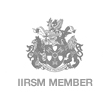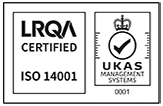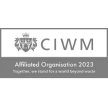This year is the 21st anniversary of the Beachwatch Big Weekend (19th – 22nd September) and to mark the occasion people all across the nation will be taking part in a Great British beach clean.
It may come as a shock that since 1997 the amount of marine litter in the UK has almost doubled, with 40.4% of the litter coming from the public. Plastic is topping the marine litter lists world wide and this is no different in the UK. If left to decompose many types of plastic can be extremely harmful to both marine life and humans – 100,000 marine animals are killed each year by ingesting plastic debris.
The three most common types of plastic marine litter are:
- Cigarette butts
- Food wrappers and containers
- Plastic bottles
Plastic breaks up into smaller pieces, which are difficult to clear up and if ingested by marine animals or birds will not break down in their stomachs. Plastics still fully intact have been found in the corpses of marine animals and birds.
Plastic biodegrades quicker in the ocean but it contains chemicals, such as bisphenol A and PSoligomer, which are toxic to both animals and humans.
Entanglement and suffocation are also risks posed to wildlife from plastic debris such as:
- Plastic bags
- Plastic drinks holders
Both take centuries to decompose in the ocean and even longer on the shore.
Here’s the thing though – plastic can be recycled! There is no need for the majority of plastic litter to be dumped on the beach, in the ocean, in landfill sites or anywhere else for that matter.
Find out how Rabbit Group can recycle your domestic or commercial plastic waste by calling us on 01903 762020 or by email info@rabbitgroup.co.uk .




